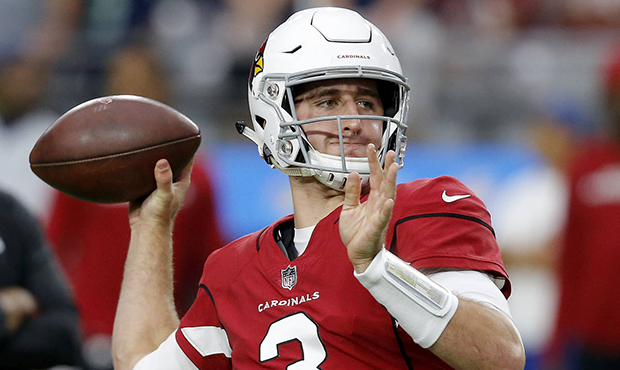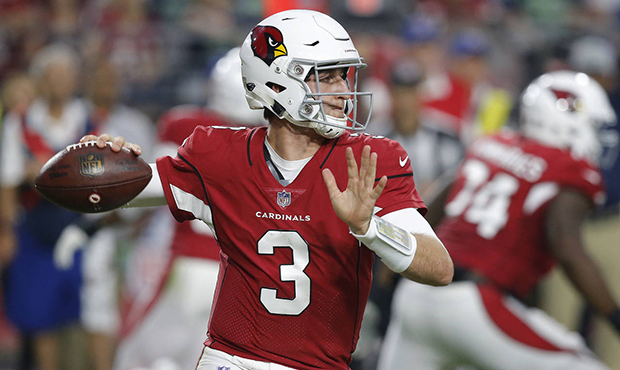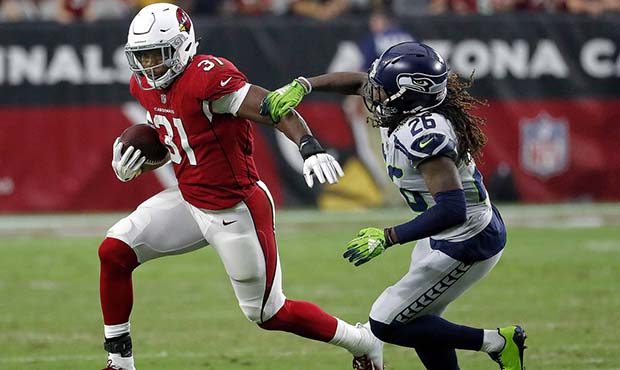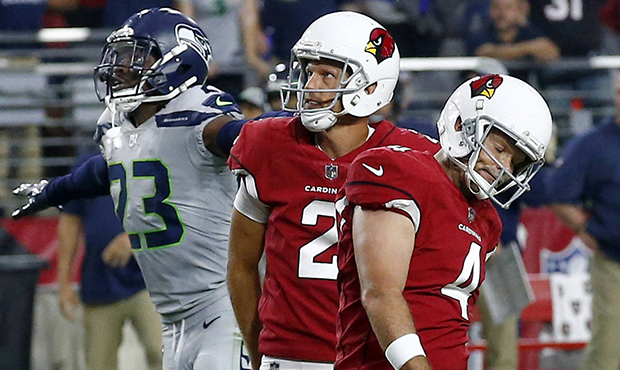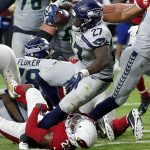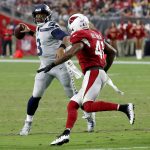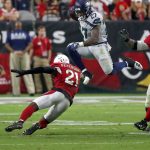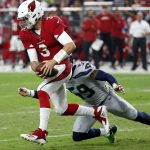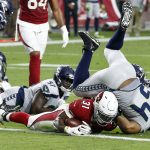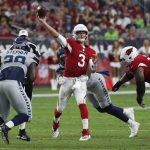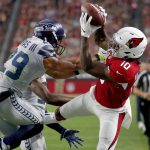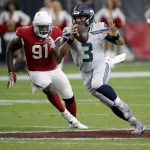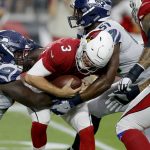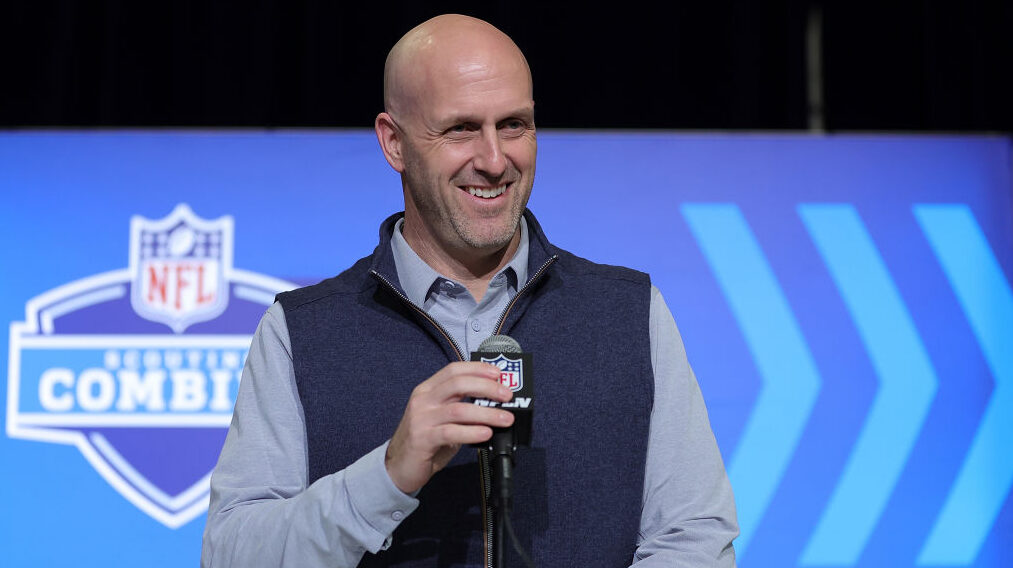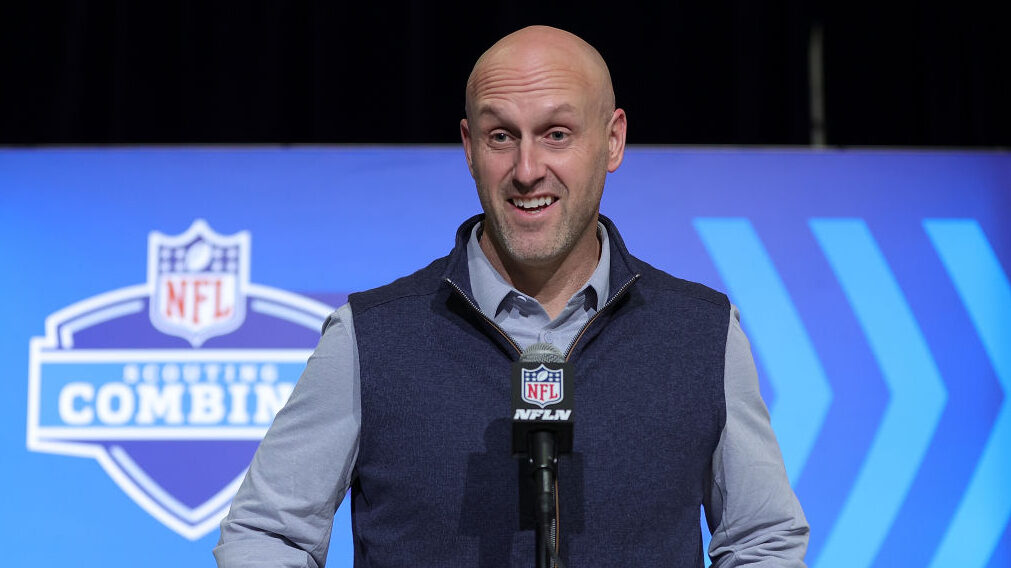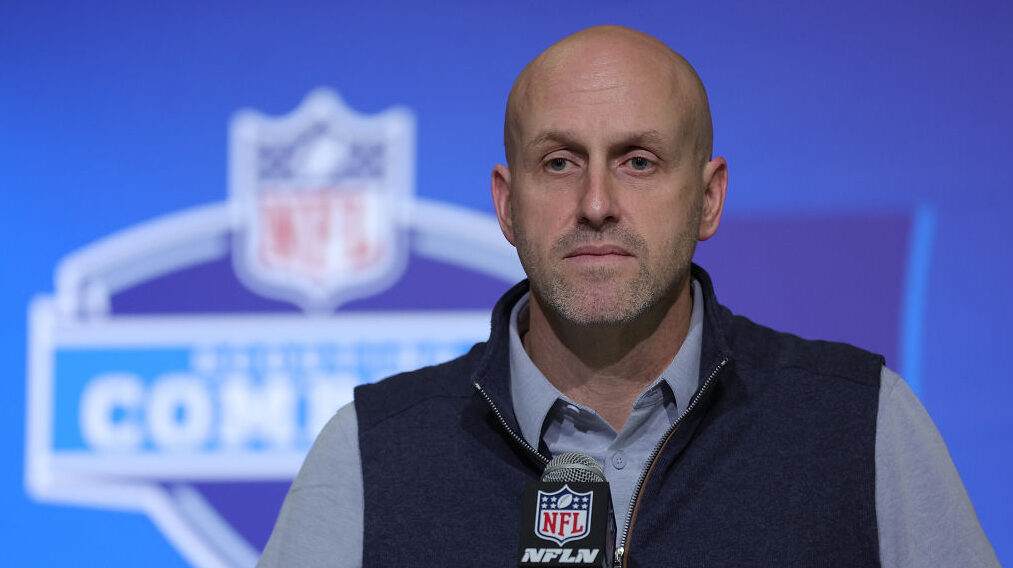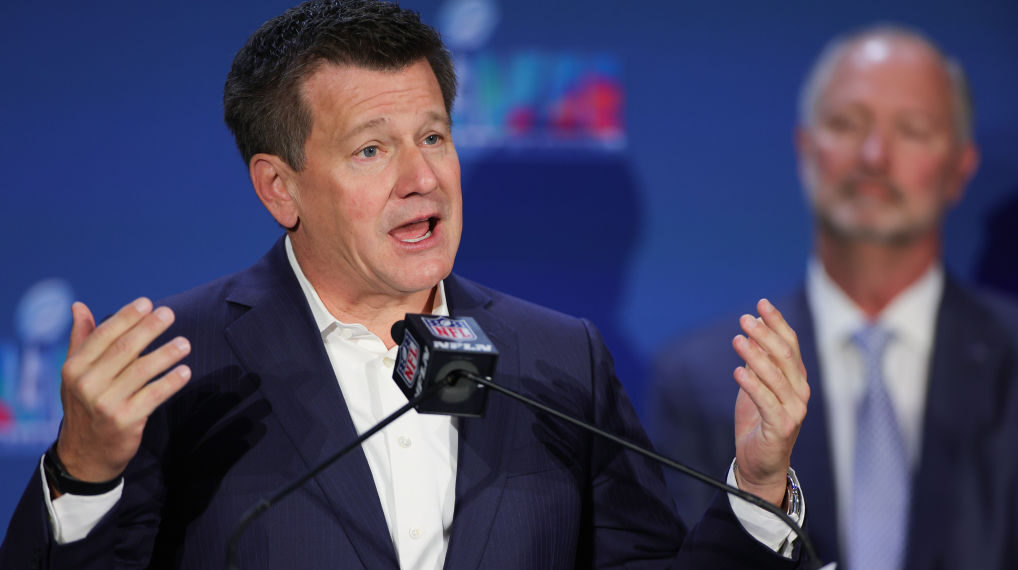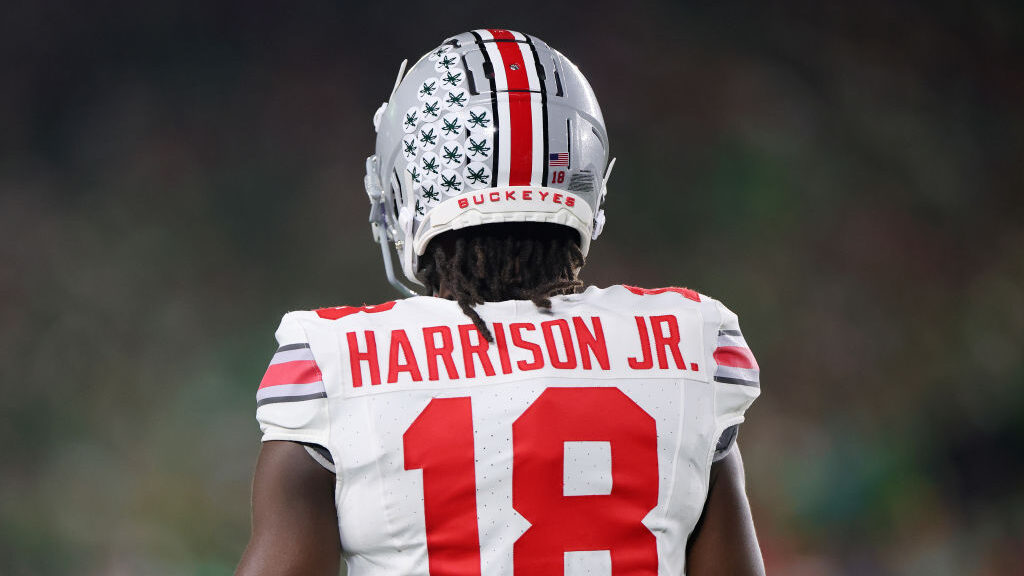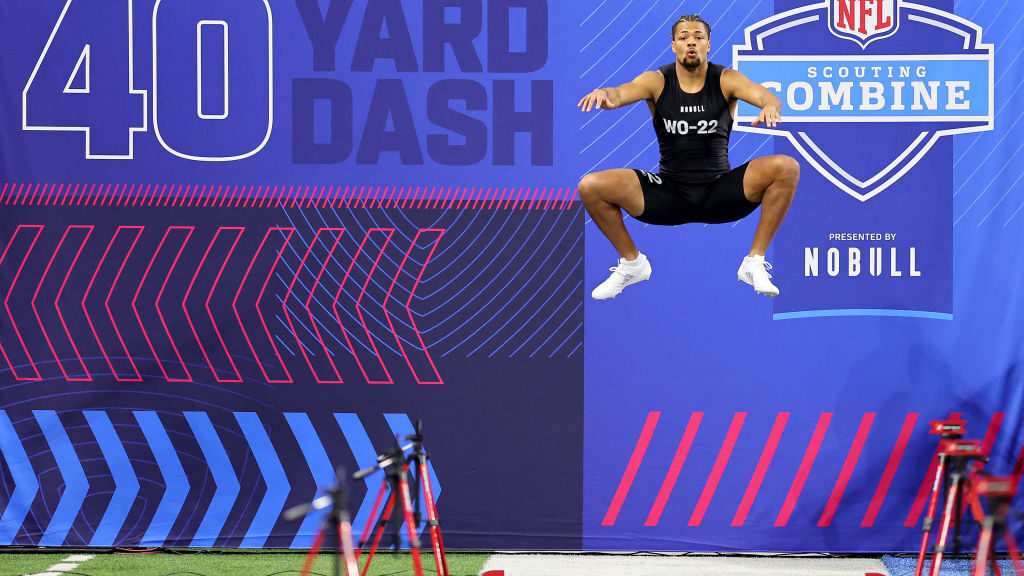Cardinals open up playbook but go conservative late in loss to Seahawks
Sep 30, 2018, 7:08 PM | Updated: Oct 1, 2018, 8:19 am
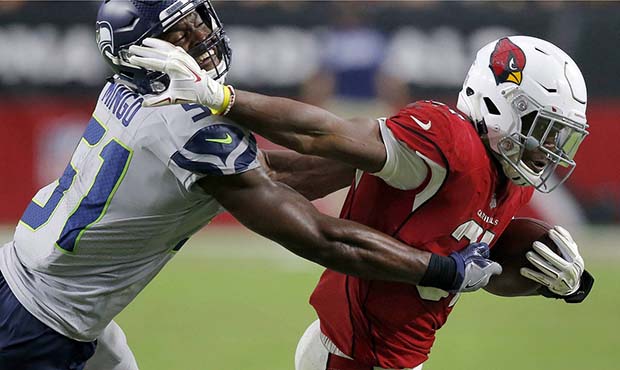
Arizona Cardinals running back David Johnson (31) fights off Seattle Seahawks linebacker Barkevious Mingo (51) during the second half of an NFL football game, Sunday, Sept. 30, 2018, in Glendale, Ariz. (AP Photo/Ross D. Franklin)
(AP Photo/Ross D. Franklin)
GLENDALE, Ariz. — Josh Rosen drove the Arizona Cardinals there.
He didn’t get the chance to take them home Sunday in a 20-17 loss to the Seattle Seahawks at State Farm Stadium.
For most of the game, Arizona (0-4) opened up the playbook having moved on from the Sam Bradford era, using bootlegs, deep shots and stretch plays to bend the Seattle defense vertically and horizontally.
Take this example: Rosen, the rookie quarterback making his first start, converted a 30-yard screen pass to running back David Johnson, a play set up out of a heavy package opposite speedster J.J. Nelson opening up the left side of the field with a deep route. The Cardinals followed the play with Rosen’s game-tying touchdown pass to Chad Williams with nine minutes left in the game.
“I think right now you saw the changes this week with Josh,” Arizona coach Steve Wilks said. “You saw the difference in how we operated from an offensive standpoint.”
But late in the game, with Rosen driving the Cardinals again, that creativity left them with a 17-all tie game.
A week after Johnson wasn’t on the field for a key third-down play that ended in a loss of yards on rookie Chase Edmonds’ run, the Cardinals went all-in on Johnson touching the ball.
Arizona’s last gasp included four straight runs up the gut from Johnson, a conservative move given that, on the last of those runs, the Cardinals had a 3rd-and-6 at Seattle’s 27-yard line. Johnson was dropped for no gain on the play, and kicker Phil Dawson then missed a 45-yard field goal, giving Seattle all the tools to burn the rest of the clock out and set up their own game-winning field goal.
“Just ran the wrong way. Supposed to stay to the left. We ran to the left and I was making the wrong read,” Johnson said of the third-down play.
Johnson finished Sunday with a season-high 22 carries for 71 yards, plus three catches for 41 more. He lined up as a receiver at times, too, picking up a key third down on the final drive as the Rosen-led offense converted five of 12 third downs on the night.
After the game, the decisions — mental errors by Johnson or not — about the curious play-calling by offensive coordinator Mike McCoy peppered Wilks’ press conference.
The head coach owned them.
“Felt very comfortable from the standpoint of where we were on the field. At the time I felt very confident in that — wanted those guys to use their timeout, their last one,” Wilks said.
“Again, every decision is my decision so it was on me,” he added. “What I was really trying to do is manage the clock there and try to get them less time as possible coming back, and also trying to get those guys to use their timeout.”
Indeed, the Seahawks used their final timeout just after the two-minute warning hit.
But after the missed Dawson field goal, that still left Seattle with 1:50 remaining to drive 31 yards for Sebastian Janikowski to knock in a 52-yarder as the clock hit 0:00.
Considering Rosen’s success had gotten Arizona into a tie game, the sudden change in play-calling looked more odd.
Setting up Rosen’s first career touchdown pass, he connected on passes of 31 yards (Ricky Seals-Jones) and 30 yards (Johnson’s screen) before throwing the dime to Williams, sneaking a ball between two receivers for a 22-yard score.
“That was a heck of a throw,” receiver Larry Fitzgerald said. “They gave us a lot different coverage than we were expecting there. They dropped a lot of guys out on the two-man route. (Rosen) was able to see I was the first read and a guy dropped underneath me and he was able to get back to the other side of the field and display some of his arm strength.”
On the next possession that began with seven minutes to play, the Cardinals moved the ball from their own 24-yard line to the Seahawks’ 40 with a combination of Johnson runs and 4-of-5 passing from their rookie quarterback. Then came Johnson’s four straight runs.
Johnson took some of the blame, especially in failing to execute the third down play. A week after admitting it was mental errors that took him out of the game for a crucial third-down play, the running back said it was a misread that may have kept Arizona from converting on third down this time around.
“I had a lot of mental errors, man,” Johnson said. “Running the ball, especially at the end of the game, helping out Phil, putting it on the … right hash. I didn’t do enough.”


